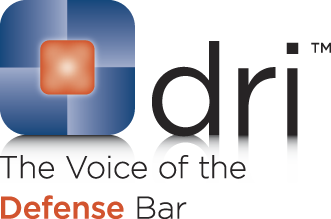Earlier this year, I was approached by a trucking insurance carrier with a list of questions regarding the method of properly calculating downtime losses in Nevada. My research produced the answers to those questions found below. I thought it would be informative to post this information for others to take a look at:
Fleet: Ideally, you should have a bookkeeping report demonstrating the prior period’s income for the unit, as well as a report demonstrating its expenses. In addition, you should have the back up documents that verify the entries income and expense entries listed on the reports . If you cannot find the back up documents, the testimony of the owner at trial may be enough to suport the information on the reports. However, if you have both the testimony and the back up documents, the reports become much more credible. You will also want a calendar shows the dates that the vehicle was in service in the prior period.
Non-Fleet: As to a non-fleet vehicle, if a substitute vehicle can be immediately obtained, then the loss would be the cost of the substitute vehicle. If a substitute vehicle cannot be obtained, then the loss would be the projected revenue of the vehicle in the prior period plus the daily cost of to the company of the non-fleet vehicle (i.e. rental or lease expense) and its expenses that the company is obligated to pay, .i.e. fuel.
2. What specific documentation is needed to prove the downtime (what type of tax returns, invoices, receipts, etc.)
Fleet: Ideally, you should have a bookkeeping report demonstrating the prior period’s income for the unit, as well as a report demonstrating the expenses. Then you should have receipts of income and expenses. At a trial, the testimony of the owner, based upon his memory may be enough, but the above documentation can also be produced to support the testimony. Those documents should be the receipts of earnings and invoices for expenses. You may also need a calendar to demonstrate the date that the vehicle ran in the prior period.
Non-Fleet: Again, a revenue report of the non-fleet vehicle in the prior period less the costs to the company of the daily use (rental or lease) of the non-fleet vehicle and its expenses saved during the downtime.
3. What expenses can be deducted, and how can these be verified?
Fleet: Fuel, plus regular cost of operation expenses like tires, maintenance, etc. Again, they should be supported
Non-Fleet: Look at daily use expenses (rental or lease) to the company that it will have to pay even though it can’t use the vehicle. That plus operating costs like fuel or maintenance that the company is obligated to pay.
4. What is the relevant case law regarding downtime, if any?
Fleet: There is no case law on specific issues related to commercial situations. However, analogies can be drawn from a private vehicle case of Dugan v. Gotsopoulas, 117 Nev. 285, 22 P.3d 205 (2001). The Dugan case stands for two propositions. First: the owner does not have to incur an actual loss of use expense in order to claim loss of use damages. In Dugan, the owner recovered loss of use damages valued at the cost of a comparable rental, even though the owner did not rent a replacement vehicle. Second: Dugan stands for the proposition that an owner can testify regarding his or her opinion of value and introduce the Kelley Blue Book to back up that opinion.
Non-Fleet: N/A
5. Is diminished value allowed? If yes, under what circumstances?
Fleet: Yes. An approved Pattern Jury Instruction describes the state of the law in this area.
Nevada Pattern Jury Instruction 10.09
If repairs have been made but the property cannot be completely repaired, the measure of damages is the difference in the fair market value of the property immediately before the accident and its fair market value after the repairs have been made, plus the reasonable cost of making the repairs.
As stated above, the Dugan case stands for the proposition that the owner of the vehicle can testify as to the value of the vehicle. That should hold true for the diminished value of the vehicle as well.
Non-Fleet: Not unless the owner of the vehicle is charging the insured for the same.
6. Are there any special exceptions of which we need to be aware?
Fleet: None
Non-Fleet: None.
As always, if you have specific questions regarding Nevada Trucking Law, feel free to give us a call here at Mills & Associates.
 Follow
Follow Email
Email


